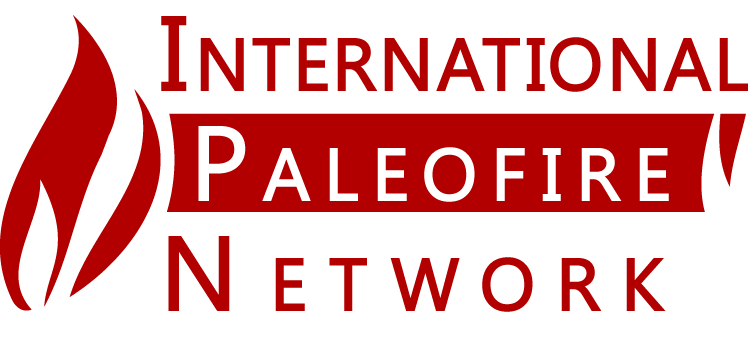
- This event has passed.
AFQUA, National Museum of Kenya, Nairobi, Kenya
We are pleased to announce the organization of a session and a 3-day workshop during and after the AFQUA conference (July 14-22, 2018) next summer in Nairobi, Kenya.
Organizers: B. Vannière, C. Courtney-Mustaphi, J. Aleman, C. Adolf, D. Colombaroli and the GPWG2
See here for more information, in particular on how to apply and regarding the session and workshop contents. The deadline to apply for the session (F05: Africa on Fire: state-of-the-art and perspectives about fire history, fire ecology and fire-vegetation-climate interactions across tropical biomes) is April 30, 2018. To apply for our workshop “African Fire History and Ecology: Building Understanding and Capacity through Collaboration and Knowledge Exchange” (July 20-22, 2018 at the National Museums of Kenya, Nairobi), send an email to paleofire@univ-fcomte.fr with a short letter (about half a page) describing your interest in the workshop, how you would like to contribute and what you would like to learn, by May 15, 2018. Limited financial support is available. Early career scientists and African researchers who use or would like to develop paleofire analyses in their research are especially encouraged to apply.
Before the workshop, attendees are asked to prepare a 5 minutes presentation on:
1) their research background and expertise,
3) what are their interests, expectations and goals from this workshop,
2) one key research question from their area of investigation in Africa.
You are welcome also to bring your own charcoal dataset (e.g. xls file) for discussion. We invite attendees to come at the workshop with their own laptop/computer. If possible, please install the latest version of the software R* (r-project.org/) and RStudio (rstudio.com/). Guidance and a short introduction to R and RStudio will be provided during the first day. * suggested R packages to install for this workshop: mgcv, vegan, ggplot2, xlsx, gridExtra, car, rpart,GCD, rworldmap, paleofire.
FINAL PROGRAM
Day 1: Knowledge transfer: data collection and data analyses
09.30-10.00 Introduction: welcome and aims of the workshop (All organizers).
10.00-11.00 Thematic session I: ‘Charcoal as a fire proxy’: (D. Colombaroli/C. Courtney-Mustaphi/), followed by discussion.
11.00-11.30 Coffee break
11.30-12.30 Short individual presentations (part 1)
12.30-13.30 Lunch break
13.30-14.00 Short individual presentations (part 2)
14.00-15.00 Thematic session II: ‘Modern continental-scale proxy calibrations’ (C. Adolf),
15.00-16.00 Practical session I: Charcoal identification, counting, morphology (C. Courtney-
Mustaphi/C. Adolf)
16.00-16.30 Coffee break
16.30-18.00 Practical session II: Quantitative analyses of palaeoecological data in R (D.
Colombaroli)
Day 2: African paleofire records: spatio-temporal gaps and challenges
09.30-10.00 Thematic session III: The Global Charcoal Database (GCD): data upload and data
mining (B. Vannière)
10.00-11.00 Practical session III: The Global Charcoal Database (B. Vannière), followed by
discussion about the Global Modern Charcoal Database.
11.00-11.30 Coffee break
11.30-12.30 Breakout session III: Identification of geographical and temporal gaps using the GCD
12.30-13.30 Lunch break
13.30-14.30 Thematic session IV: Biome distribution and critical transitions in the Afrotropics
(video conference with J. Aleman)
14.30-16.00 Breakout session IV: State-of-the art and assessment of charcoal data from Africa.
16.00-16.30 Coffee break
16.30-18.00 Breakout session IV (Continued): with group report and plenary discussion
Day 3: Global changes, fire and conservation: capacity building and collaborations
09.30-10.00 Thematic session V: Applied paleoecology in the African context: diverse knowledge
systems for fire policy and biodiversity conservation (@diverse_K; All organizers)
10.00-11.00 Breakout session V: paleo-informed biodiversity conservation
11.00-11.30 Coffee break
11.30-12.30 Breakout session V (continued): paleo-informed fire policy (with plenary discussion)
12.30-14.00 Lunch break
13.30-14.00 Thematic session VI: future projects (J. Aleman)
14.30-16.00 Breakout session VI: drafting new projects based on the research gaps/challenges
identified before. Potential funding sources and new collaborations opportunities.
16.00-17.00 Wrap-up, research agenda and concluding remarks (plenary)
